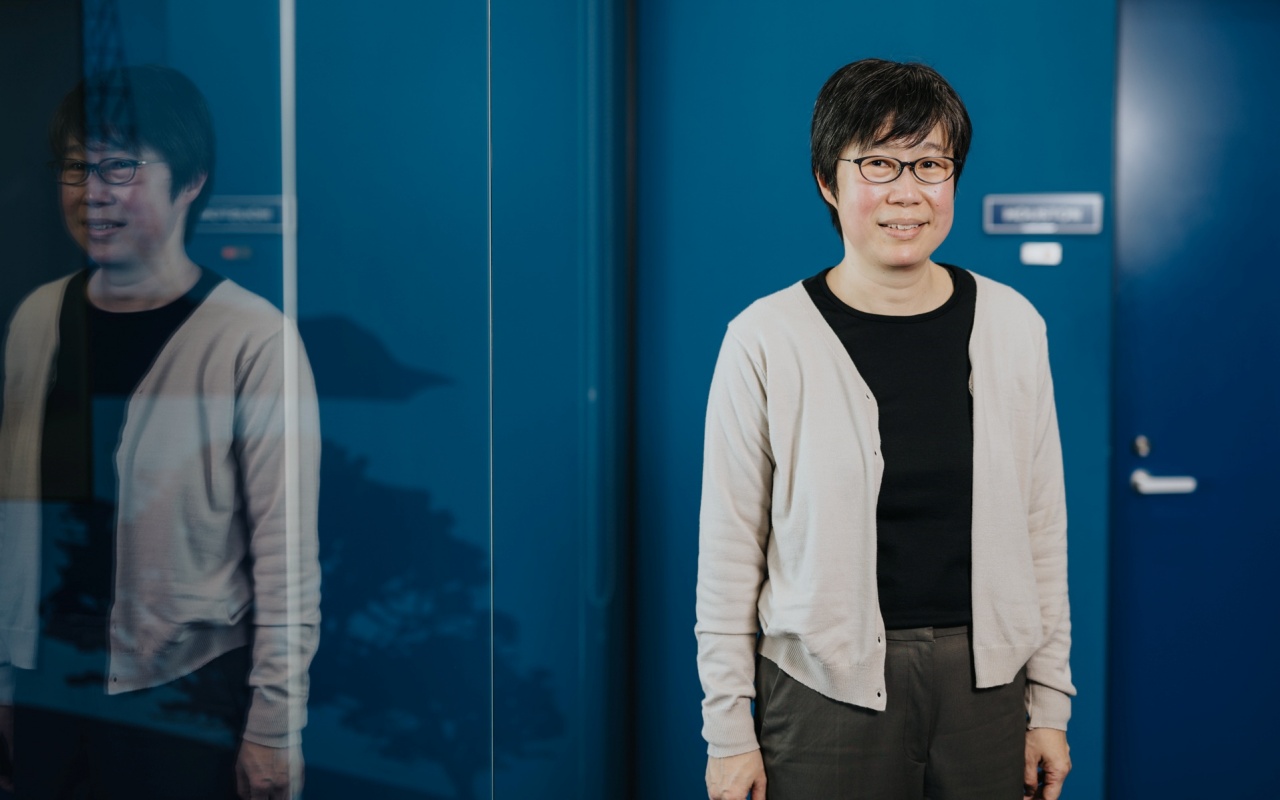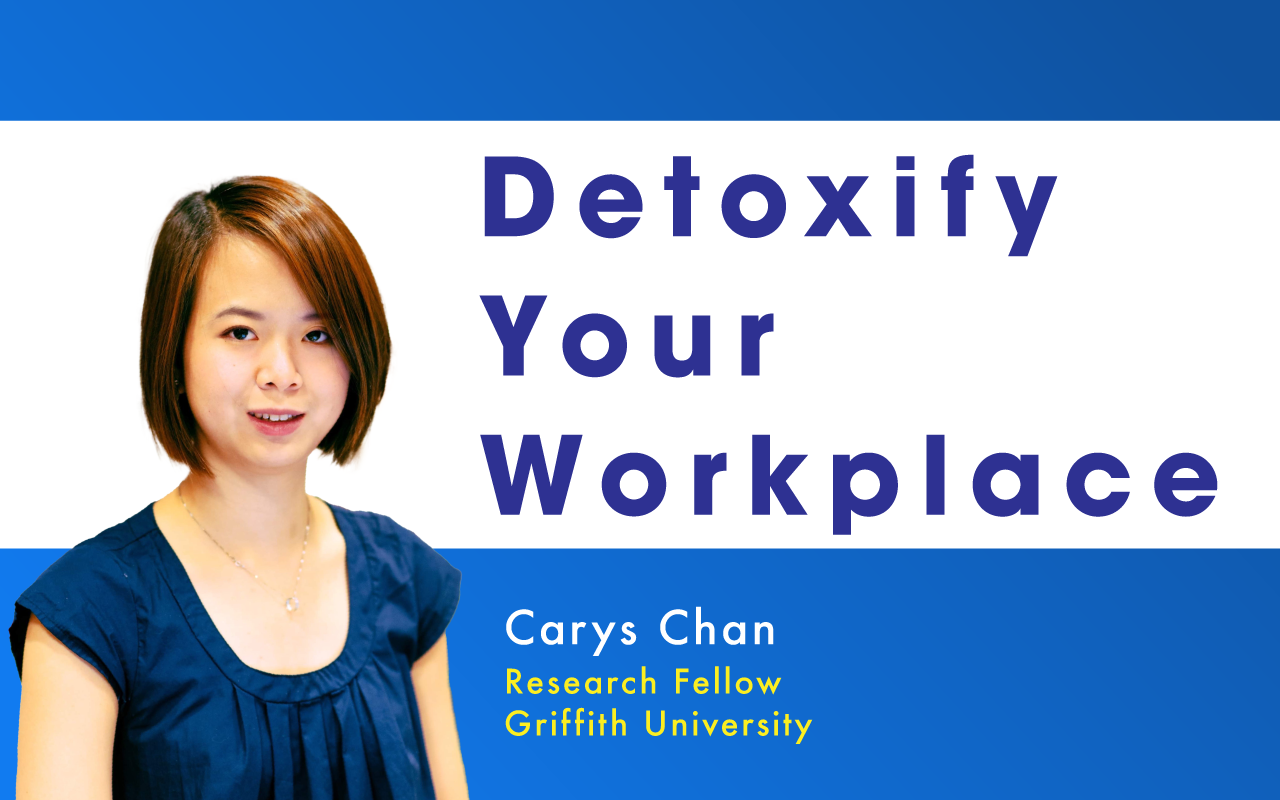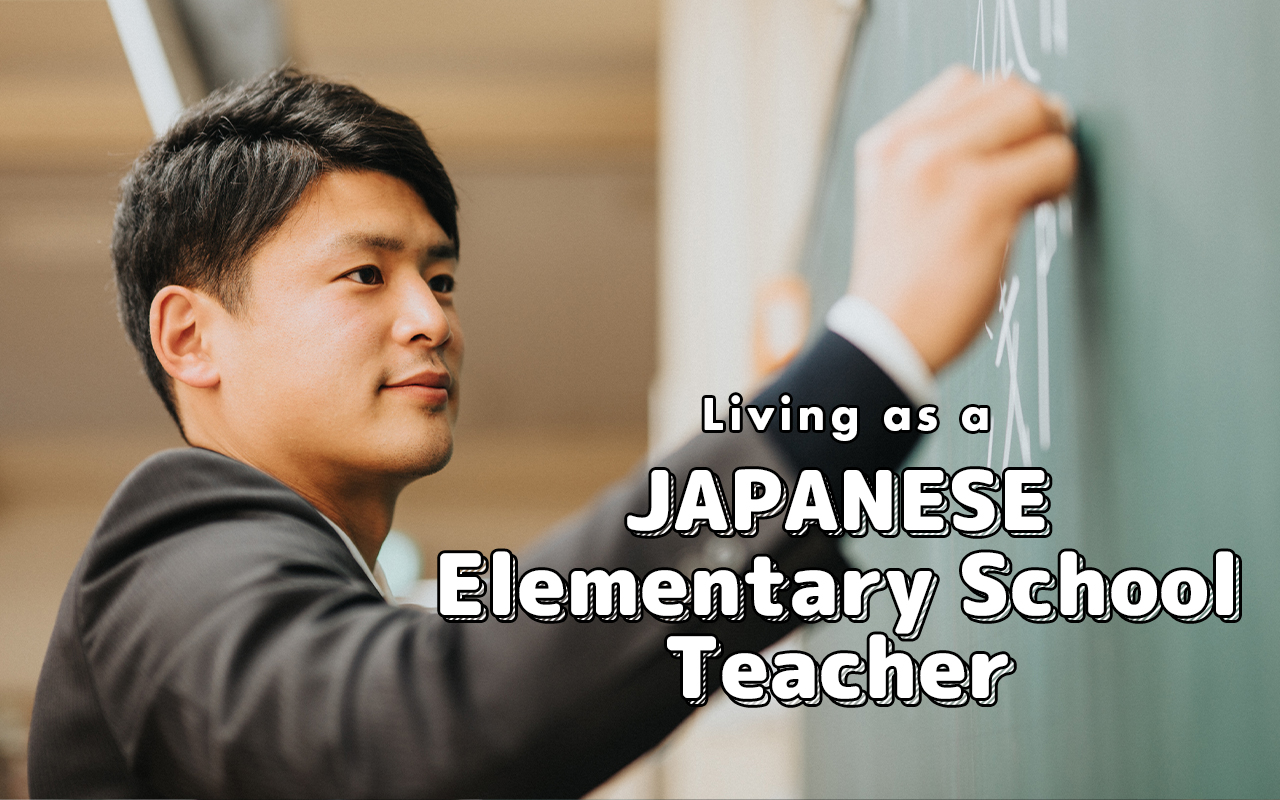Open Communication Is Changing the Way Companies Do Business
Slack CEO Stewart Butterfield and Cybozu CEO Yoshihisa Aono discuss the links between technology and corporate culture.
Discussing the influence of technology on corporate culture can feel like being plunged into a murky soup of corporate buzzwords. Agility, information-sharing, transparency, autonomy—catchy terminology has become ubiquitous in thought leadership circles. We obviously want more of each of these things, but are often unsure of what achieving them would truly entail.
Beyond their superficial appeal, each of these terms carries implications on the way we use technology to work together. To stay afloat in an increasingly competitive global market, companies need to understand and embrace new technology. In turn, optimal use of technology has implications on organizational structure and company culture.
To make sense of the relationship between technology and corporate culture, Cybozu CEO Yoshihisa Aono sat down to interview Stewart Butterfield, the co-founder and CEO of Slack Technologies, Inc. They discussed the benefits of open communication, the major organizational changes that transparency is bringing to companies, and the upcoming changes we can expect as technology continues to disrupt our working lives.
The open communication takeover
Yoshihisa: I would be curious to hear about why you decided to found Slack. What was your vision?
Stewart: We actually started the company to do something completely different. It was originally a game company. We had developed a system for internal communication that we loved.
Along the way, we decided we would stop working on the game, and that Slack could be a great product on its own. We knew Slack would be very useful for small teams and software developers like us. We never imagined how broadly it would develop.
Yoshihisa: How did you know Slack would have such broad appeal?
Stewart: Fundamentally, Slack is about moving messages out of individual inboxes and into channels which are shared within an organization.
The result is a lot more transparency. People can see what their colleagues are working on across the entire organization. It becomes possible to join a project, or even a company, along the way and still have access to its whole history.
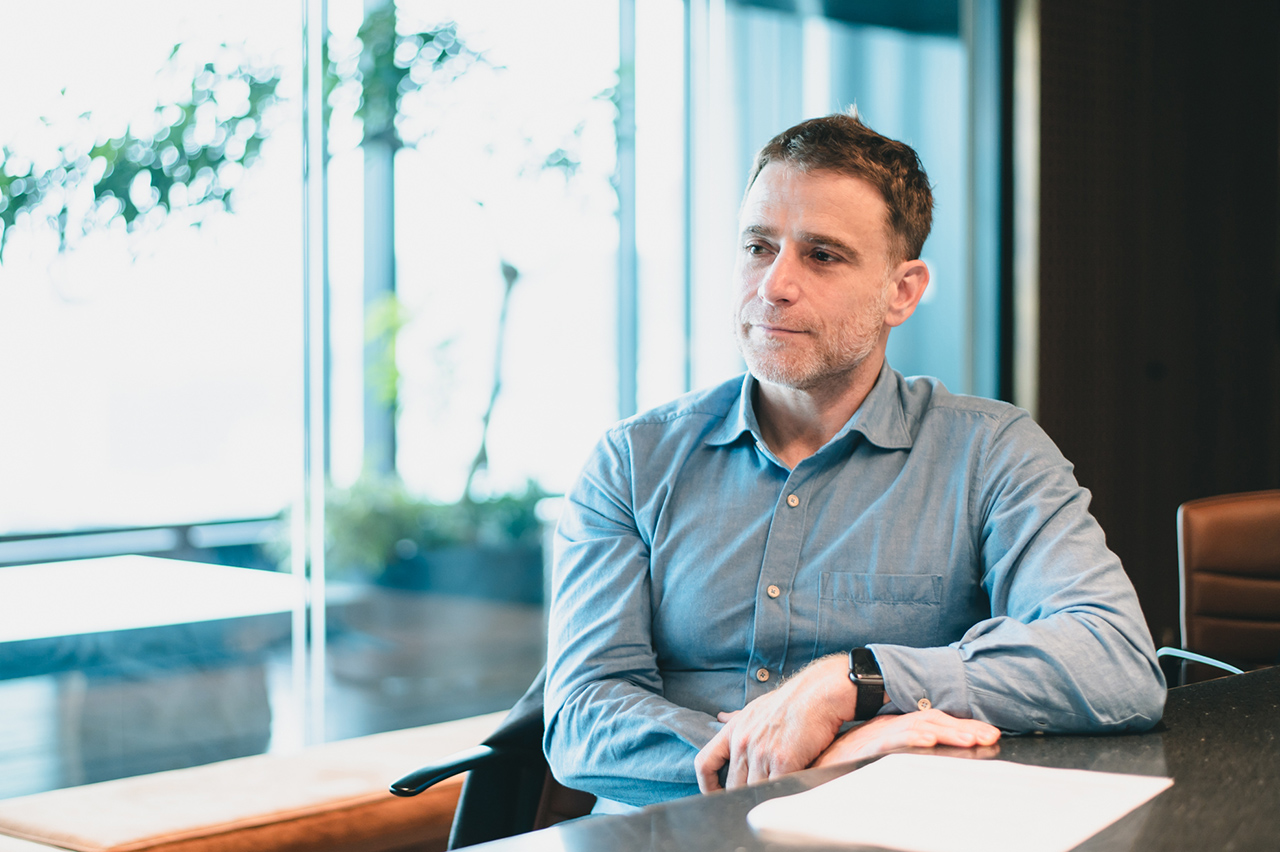
Stewart Butterfield pioneered a new way of sharing information online when in 2003 he co-founded Flickr and built the company into one of the largest web services in the world. His success streak continued when in 2014, he co-founded the wildly successful Slack Technologies, Inc., of which he is currently the CEO.
Stewart was named as one of the 100 Most Influential People in the World by Time Magazine, one of the Top 50 Leaders by BusinessWeek and the Technology Innovator of the Year by the Wall Street Journal, among many similar honors. He has a bachelor's in philosophy from the University of Victoria and an master's in philosophy from the University of Cambridge.
Yoshihisa: Moving from email, which is essentially a closed communications system, to Slack, an open system, has done a lot to increase transparency within organizations. What would you say are the benefits of increased transparency?
Stewart: Transparency and alignment are two sides of the same coin. If people don't have access to the same information, it's very difficult for them to work together. If our goal is to coordinate our actions around shared objectives, we need to share information.
Maintaining alignment over a period of time allows organizations to accomplish more and develop agility. This is something larger companies struggle with. We would love to see large companies develop the same level of agility as smaller ones.
We want many kinds of marketers working together to tell a compelling story. Then, we want those working on the product to design a user experience that will match the story. We want data engineers to provide feedback on how our website and products are actually being used. We want PR to put out a message that matches the user's actual experience. I could keep on going—but the point is, we want a very large number of people working tightly with the same understanding of what they're trying to accomplish.
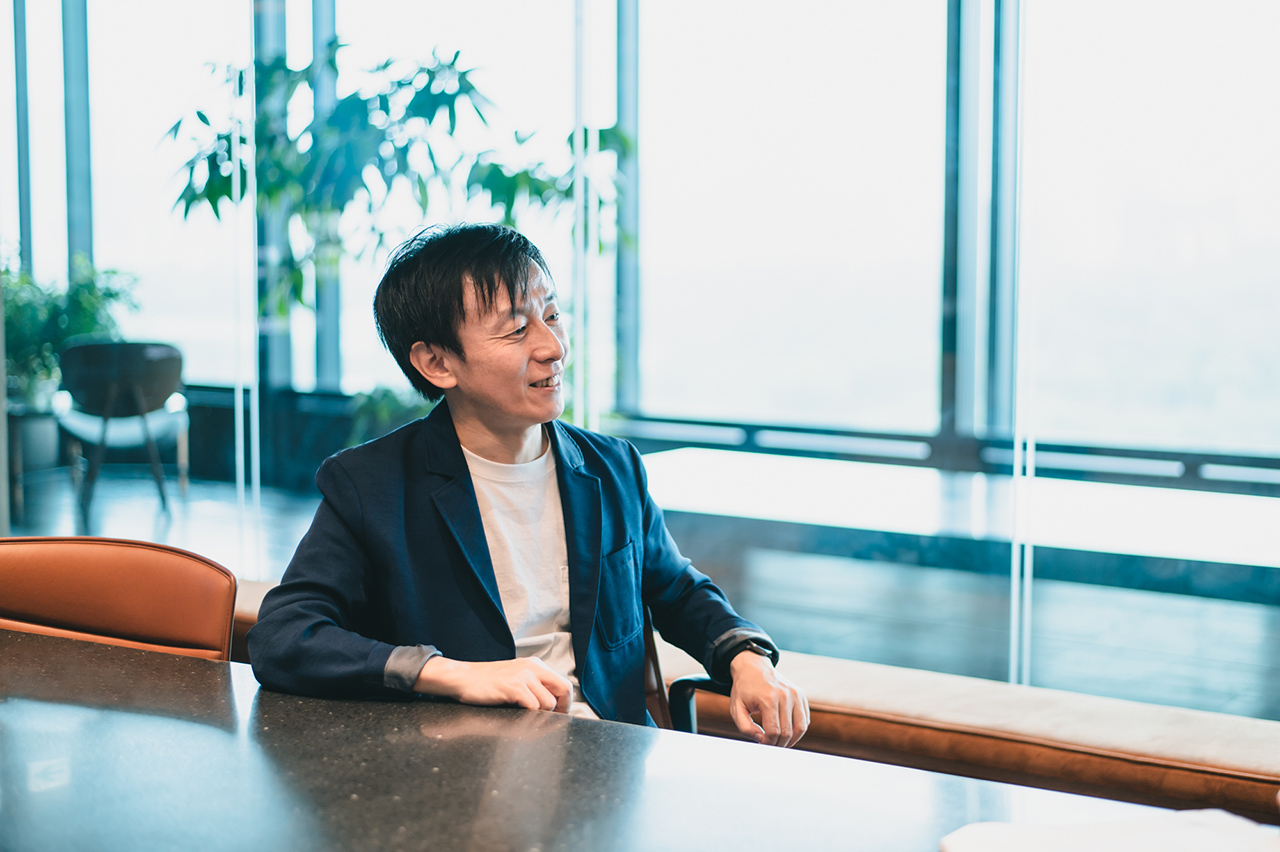
Yoshihisa Aono was born in 1971. After graduating from the Information Systems Engineering Division of the School of Engineering at Osaka University, he joined Matsushita Denkou (currently Panasonic). In August 1997 he co-founded Cybozu, and in April 2005 he was appointed CEO. Yoshihisa spearheaded the company's workstyle reform, as well as its transition toward cloud-based products in 2011. He is the author of several books on teamwork and happiness at work.
Tools to operationalize culture
Yoshihisa: When companies switch from email to Slack, do you see a shift in their culture?
Stewart: Sometimes, but not automatically. There is nothing in the Slack product that will naturally fix a culture problem. However, I think it's a very effective tool to allow for a culture shift.
Yoshihisa: So Slack could be used as a closed communication tool, the same way as email?
Stewart: There will still be improvement over email, just because information will become more accessible. But you could still have negative aspects of your culture that Slack won't fix for you—things like lack of trust, or lack of respect. Slack makes those elements easier to fix, but won't naturally fix them.
There's another point I want to emphasize. Early on, one of our biggest customers was IBM. Their CIO really wanted to shift the way software was developed, but IBM is an established company that employs hundreds of thousands of developers. It was a major shift to make.
The CIO said he saw Slack as a way of operationalizing culture. He was able to take the change he wanted to see in the culture and package that with a shift to Slack. He used a tool change to drive a change in the way people worked, and it was very successful. I've always liked that idea of operationalizing culture.
Yoshihisa: I think that's a very important point. My company is in a similar situation. Where Slack helps shift from closed email to open communication, our platform, Kintone, helps shift from Excel to a more open database. You can use our platform to build apps that make information open and accessible across all departments. Using our product requires our users to think about their culture.

Yoshihisa: For Slack, do you think there is an ideal culture that is best aligned with the product?
Stewart: Companies with different cultures can be successful using Slack. For example, Bridgewater Associates is the biggest hedge fund in America. It's famous for its culture of transparency—a meritocracy where everyone is encouraged to have a battle of ideas. Other companies, for example many startups, have a nicer culture where people are friendlier to one another. I think both can be successful using Slack.
One culture that doesn't work very well is organizations where middle managers withhold information as a means of exercising power. Slack makes that harder to do, which means those kinds of companies will be less successful with our product.
The benefits of small, autonomous teams
Yoshihisa: Slack grew very quickly in a short amount of time. How do you manage information while your company is undergoing explosive growth?
Stewart: We see two opposite tendencies. When you're a small company, it's very easy for everyone to be involved in everything, and people feel free to give their opinions. As you get bigger, that gets harder. You start having too many people give feedback.
As a response, there's a tendency in the other direction—for people to have conversations that should be held in public take place within a very small group. At Slack, we have a rule to try to have the conversation in the largest channel that makes sense.
To avoid having everything happen in the same place, you should have focused channels on certain topics. However, those focused channels should ideally be public, so that other people can join later, or so the channel can appear in search results.
Yoshihisa: Keeping information public is very important, as it increases learning speed by allowing newcomers to understand the logic that led to each decision. That level of transparency is something we value at Cybozu. Unfortunately, the downside is that we do sometimes have to deal with too much feedback. Do you incorporate all the feedback you receive at Slack?
Stewart: We like all the feedback we get from customers. We receive tens of thousands of pieces of feedback every week. If a customer has a question, we have to answer it—there's a different sense of obligation toward our clients.
When it comes to colleagues, there will always be suggestions, and you have to take them seriously. However, being obligated to either incorporate those suggestions or explain why you're not going to can become a burden. That's why we accept feedback from colleagues, but don't think there should be an obligation to respond.

Yoshihisa: I see what you mean. At Cybozu, we incorporate transparency into our executive decision-making. Our executive meetings are open for the whole company. But if everyone starts talking, the meeting won't go anywhere, so I do moderate the discussion.
Stewart: There's a book called Team of Teams, by an American general named Stanley McChrystal. His big priority was what he called shared consciousness—the idea that everyone having the same picture would allow teams to make their own decisions in alignment with the decisions made by other teams.
General McChrystal would hold almost daily ninety-minute-long conference calls with over 7,000 people on the line. Those thousands were themselves coordinating an army of hundreds of thousands of people. It was a big chunk of their time, but everyone had the same information, and everyone had a clear expectation of what their colleagues would do.
Yoshihisa: That's crazy, over 7,000 people?!
Stewart: This was an interesting shift in thinking. The military had been taking heavy losses to guerrillas and terrorist cells, who shared their objectives but operated independently. In the military, their feedback loop was slowing down the decision-making process.
When you have just one team, a small group, you share a lot more information and everybody knows what everyone is doing. When your organization becomes large, each team risks becoming isolated. This "team of teams" approach allows large organizations to have the same shared understanding and alignment as they had when they were smaller.
Yoshihisa: In your example, the general would share an overarching vision with his troops. What is that vision for you at Slack?
Stewart: Our vision is to allow organizations of all sizes to achieve organizational agility. We also have a mission: to make people's working lives simpler, more pleasant and more productive. Then, there's much more important tactical information about what our priorities are. That information needs to be shared daily.
Imagine watching a soccer game. If we were to watch frame by frame, every frame you would see members of the team dynamically relocating, changing position. Almost all of these decisions are made autonomously. Players know their own role and the roles of the other players. They have a good idea of their own strengths and weaknesses and their teammates' strengths and weaknesses.

Everyone has access to the same information. Players can easily see objectively where the ball is and which direction it's going. As a result, they can adjust their direction and speed many times per second. When we look at the resources of the team—the muscles, brains and so on—almost all of them are effectively deployed toward a shared objective of winning the game. Then look at a large organization, with thousands of people and complex requirements. Very few resources are effectively deployed toward achieving shared objectives.
It's much easier for the sports team. In a soccer game objectives are very clear, whereas for us there is a lot of debate and discussion about what the objectives should be for the year. They only have 11 people, we have thousands. They play the same game over and over again, we play a different game every day. Their game is finite, ours goes on continuously. Players have fixed roles and rules around what they're allowed to do, whereas we make up new roles all the time, so people can't make decisions as easily as they can in a soccer game.
Nevertheless, the closer you can get to very clear roles and objectives, the faster you're able to move, and the more decisions people are able to make for themselves.
Yoshihisa: I see. Agility requires vision.
Stewart: A clear vision, and clear objectives. As CEOs, we have a broad perspective. Many people lower in the organization have a narrower perspective. They have more detail in their areas than I have, but they don't have my broad perspective. If their work isn't aligned with the objectives of the company, they can end up doing a lot of work that has little impact.
For example, adding a lot of pages to the website. Someone can get that job done, but if those pages weren't useful content for customers, did they do a good job or a bad job?
According to their perspective, good, because they did what they said they would do, and they did it well. But from a broader perspective, their work didn't help us get more customers. That kind of disconnect is very frequent.
Yoshihisa: That's something we emphasize a lot at Cybozu. The one thing I ask our employees to always have in mind is our shared vision of "building a society brimming with teamwork."
Of course, people will try to start new things. We're a software company, but we recently started a consulting service to improve company culture—because if we help companies improve their culture, it is easier to sell the merits of our software. We've also set up a publishing service, because if companies become interested in the importance of transparency for their business, they are more likely to purchase our product. Personally, I'm only interested in the software, but who knows, maybe five years down the road we'll be a publishing company. I'm fine with that, as long as we're working toward our vision.
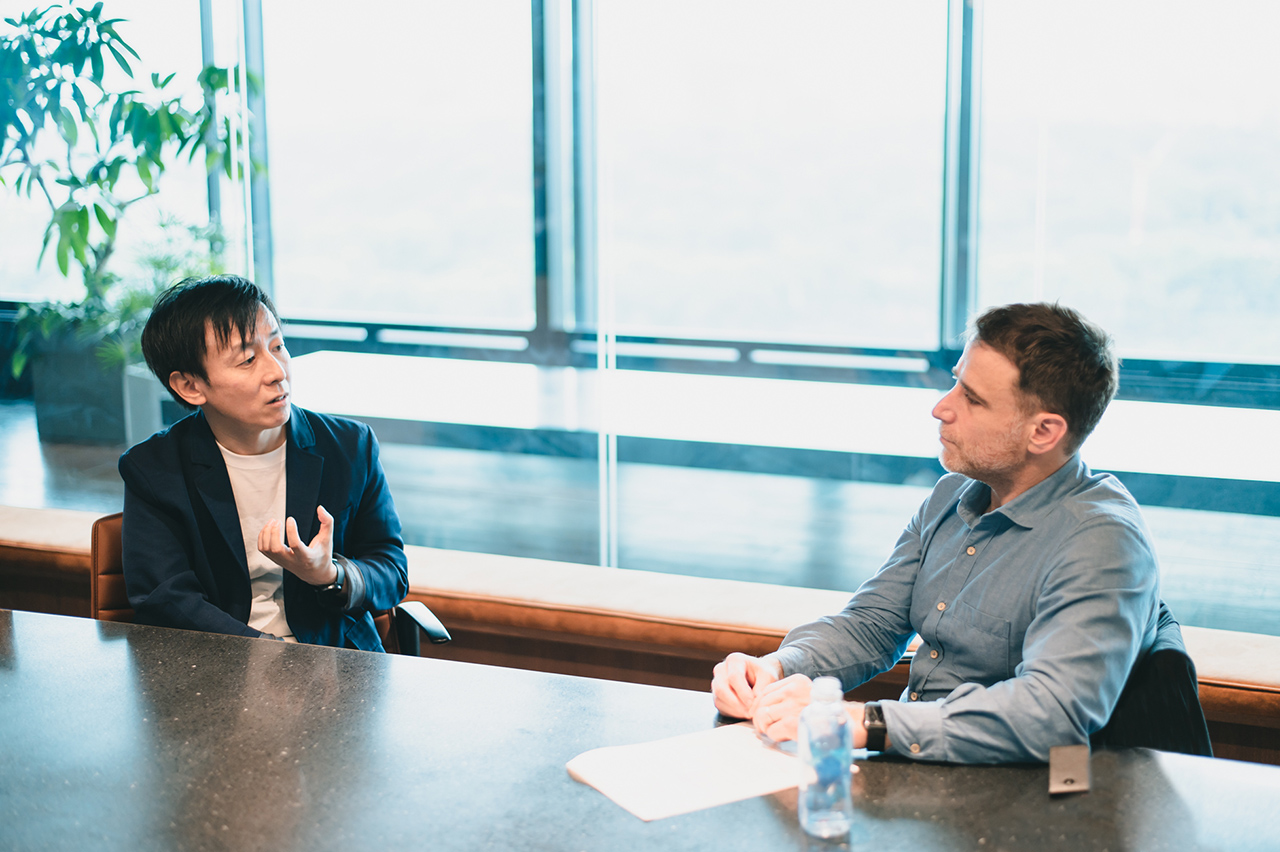
Automating the menial to focus on the meaningful
Yoshihisa: In Japan, as the population ages, we can see young people driving a change in work culture. It used to be that young people tried to get into the most famous companies, but now, we see that if the culture is bad, they're more likely to quit. The internet has become a natural part of their lives—they have more access to information than ever. They know the value of searching for happiness and purpose in their work, and they know when a company is not being good to them.
Is this something you see in the U.S., and what workstyle changes do you anticipate in the future?
Stewart: The changes that Japan is going through happened in the U.S. a long time ago. In our industry, the average amount of time people stay at their company is only two years. The bigger change I'm seeing is that software is increasingly taking the repetitive parts out of our jobs.
Spreadsheets are an amazing example. They are perhaps the best single application for businesses in all of history. When I was in college, I had a job as a filing clerk. I would open drawers, put documents in, pull others out—no one does that job anymore.
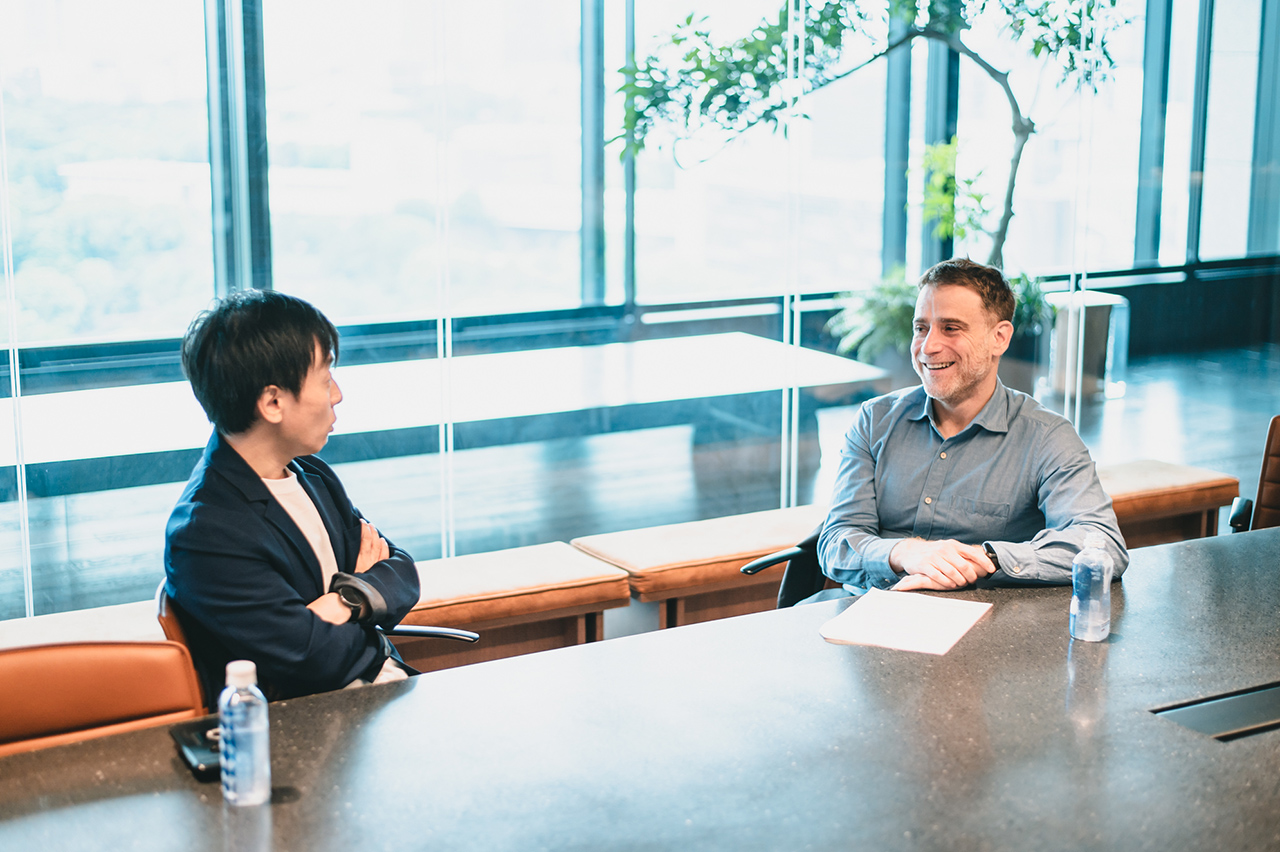
As the menial jobs get automated away, the work that remains is more challenging; more demanding in terms of intelligence and creativity. It is also harder to manage. If you managed a factory 100 years ago, you could see how fast people were and if they were doing a good job. Think about a modern marketing department—it's very difficult to evaluate the performance of people and understand their impact in a meaningful way.
When I imagine 20 years from now, the things we will be able to automate will become increasingly sophisticated, which means work will be more and more challenging both to perform and manage.
Yoshihisa: I'm optimistic about automation. When you take the menial parts out of a job, what's left are the meaningful parts, so ultimately automation can make people happier at work. Are you also an optimist?
Stewart: Definitely. The nature of work is changing. There are more massage therapists than there were 100 years ago; more personal trainers and baristas. There are no limits to the new desires and new experiences that humans can come up with.
The biggest technological shift in human history was the development of nitrogen fertilizer. Before its invention, the job of about 20 percent of people was to spread manure on fields. Agriculture was 90 percent of all jobs—now it's 2 percent. People didn't stop working, they just moved on to other things. That's why I'm very optimistic about the future.

Written by Alex Steullet. Photographs by Dan Takahashi. Edited by Toko Suzuki and Mina Samejima. Special thanks to Slack Japan for all their help in setting up this interview. Check out the Japanese version below:
Writer

Alex Steullet
Alex is the editor in chief of Kintopia and part of the corporate branding department at Cybozu. He holds an LLM in Human Rights Law from the University of Nottingham and previously worked for the Swiss government.
Photographer

Dan Takahashi
Dan is an editor and photographer for Kintopia's Japanese twin website Cybozu-shiki. He is the most recent member to join the corporate branding department at Cybozu.
Editor
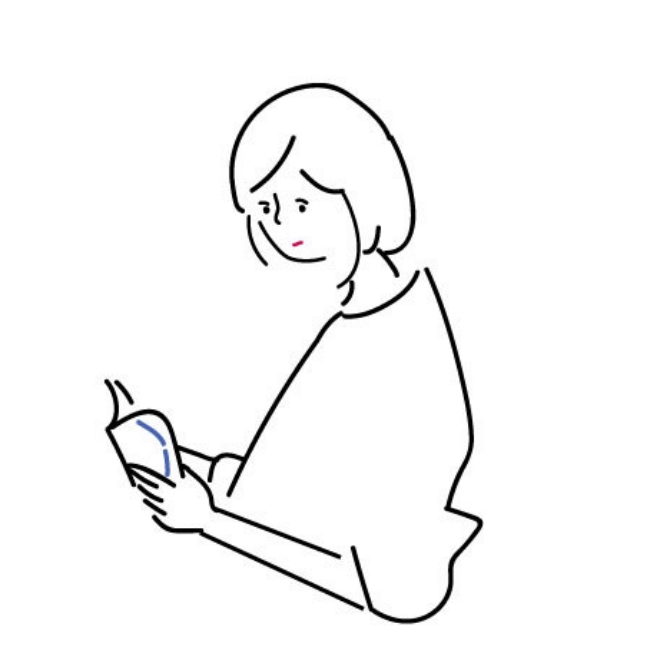
Toko Suzuki
Toko is an editor and translator for Kintopia's Japanese twin website Cybozu-shiki and a member of the corporate branding department at Cybozu. Prior to joining Cybozu, she worked as an editor for a publishing company and a consulting firm.

